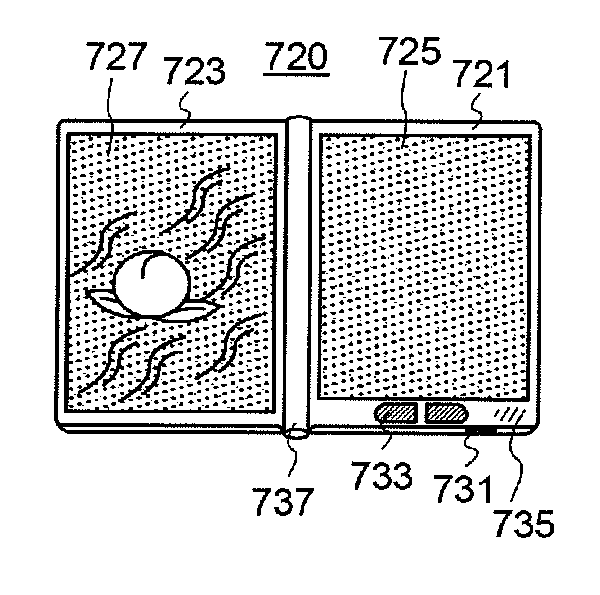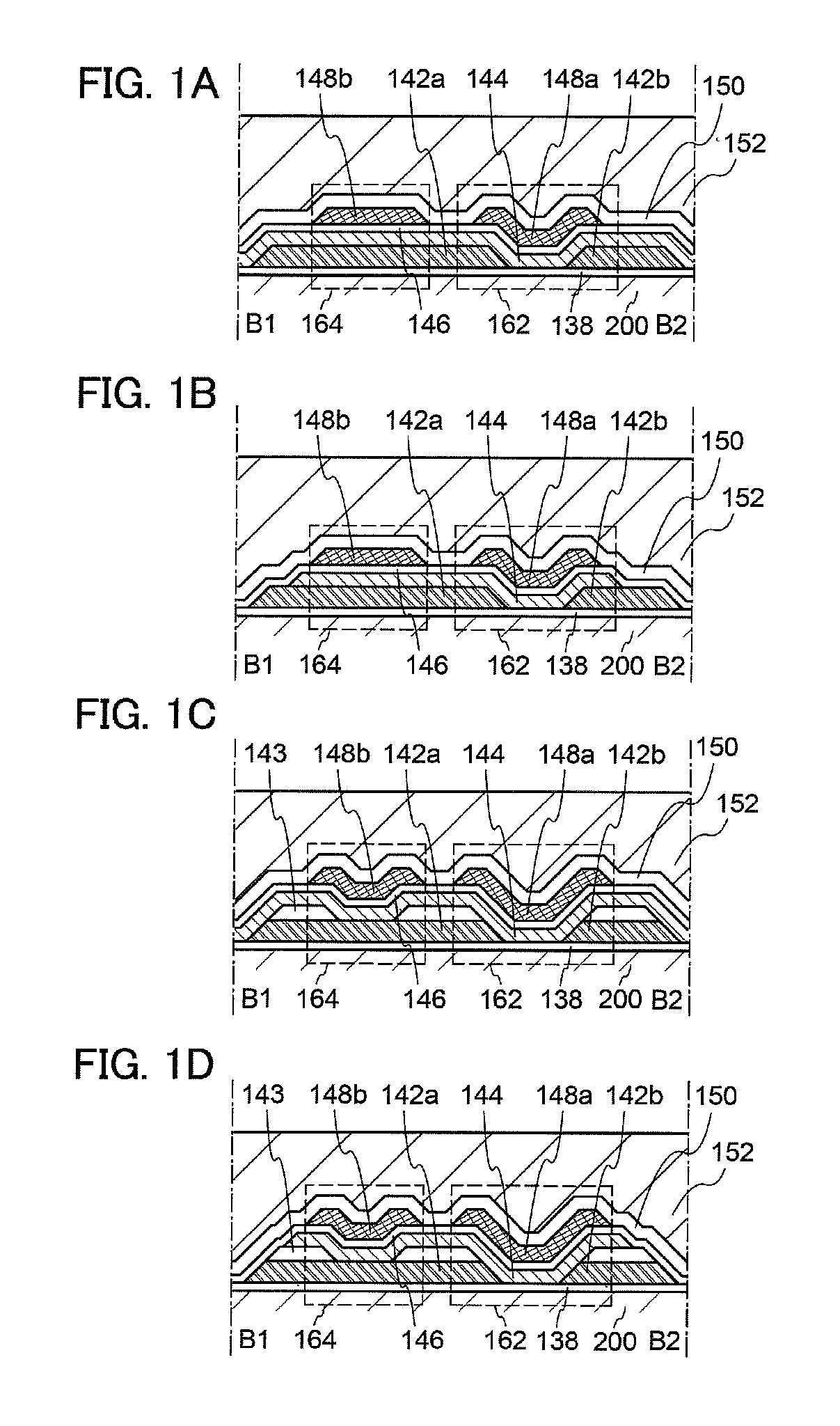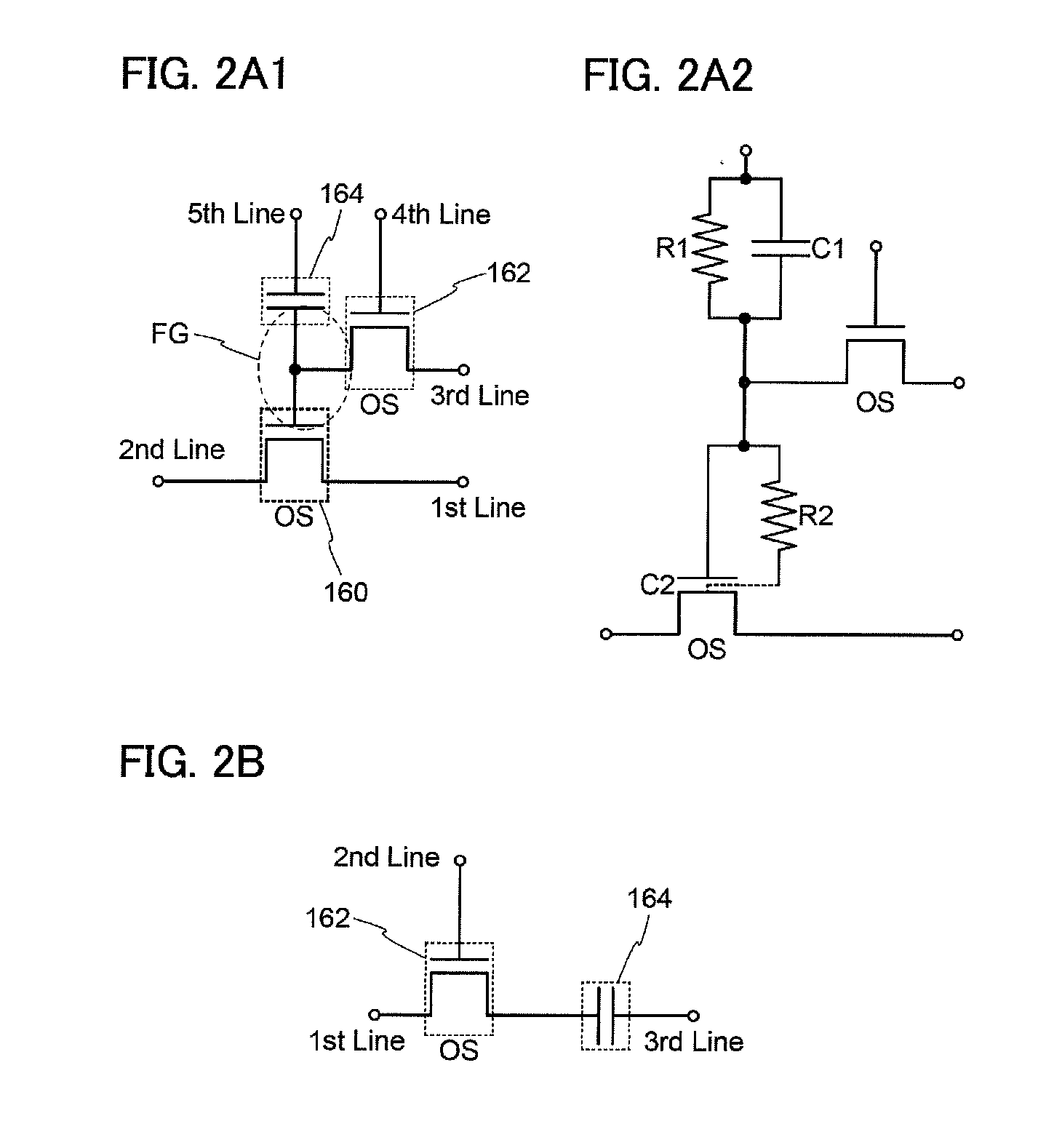Semiconductor device
a technology of semiconductor devices and semiconductors, applied in semiconductor devices, electrical equipment, instruments, etc., can solve the problems of long time-consuming storage of data, achieve the effect of reducing power consumption, and ensuring the safety of data
- Summary
- Abstract
- Description
- Claims
- Application Information
AI Technical Summary
Benefits of technology
Problems solved by technology
Method used
Image
Examples
embodiment 1
[0038]In this embodiment, structures and a manufacturing method of a semiconductor device according to one embodiment of the disclosed invention will be described with reference to FIGS. 1A to 1D and FIGS. 2A1, 2A2, and 2B. Note that in some of the circuit diagrams, “OS” is written beside a transistor in order to indicate that the transistor uses an oxide semiconductor.
[0039]FIGS. 1A to 1D each illustrate an example of a structure of the semiconductor device. FIGS. 1A to 1D each illustrate a cross section of the semiconductor device. The semiconductor devices illustrated in FIGS. 1A to 1D each include a transistor 162 using an oxide semiconductor and a capacitor 164.
[0040]Although all the transistors are described as n-channel transistors here, it is needless to say that p-channel transistors can be used. Since the technical nature of the disclosed invention is to use an oxide semiconductor in the transistor 162 so that data can be stored, it is not necessary to limit a specific str...
embodiment 2
[0083]In this embodiment, a manufacturing method of a semiconductor device using an oxide semiconductor, specifically a manufacturing method of the transistor 162, will be described with reference to FIGS. 3A to 3E.
[0084]First, the insulating layer 138 is formed over the substrate 200. After that, a conductive layer is formed over the insulating layer 138 and is selectively etched, so that the source or drain electrode 142a and the source or drain electrode 142b are formed (see FIG. 3A).
[0085]As the substrate 200, for example, a glass substrate can be used. Alternatively, as the substrate 200, as well as a glass substrate, an insulating substrate formed using an insulator such as a ceramic substrate, a quartz substrate, or a sapphire substrate, a semiconductor substrate formed using a semiconductor material such as silicon, a conductive substrate formed using a conductor such as metal or stainless steel, any of these substrate whose surface is covered with an insulating material, or...
embodiment 3
[0123]In this embodiment, a manufacturing method of a transistor using an oxide semiconductor (especially, an oxide semiconductor having an amorphous structure) will be described with reference to FIGS. 4A to 4E. The transistor can be used instead of the transistor 162 or the like in any of the above embodiments. A structure of the transistor according to this embodiment and the structure of the transistor according to any of the above embodiments are partly common to each other. Therefore, a difference is mainly described below. A top-gate transistor is described below as an example; however, a structure of the transistor is not limited to a top-gate structure.
[0124]First, an insulating layer 202 is formed over the substrate 200. After that, an oxide semiconductor layer 206 is formed over the insulating layer 202 (see FIG. 4A).
[0125]For example, the substrate 200 in any of the above embodiments can be used for the substrate 200 in this embodiment.
[0126]The insulating layer 202 corr...
PUM
 Login to View More
Login to View More Abstract
Description
Claims
Application Information
 Login to View More
Login to View More - R&D
- Intellectual Property
- Life Sciences
- Materials
- Tech Scout
- Unparalleled Data Quality
- Higher Quality Content
- 60% Fewer Hallucinations
Browse by: Latest US Patents, China's latest patents, Technical Efficacy Thesaurus, Application Domain, Technology Topic, Popular Technical Reports.
© 2025 PatSnap. All rights reserved.Legal|Privacy policy|Modern Slavery Act Transparency Statement|Sitemap|About US| Contact US: help@patsnap.com



